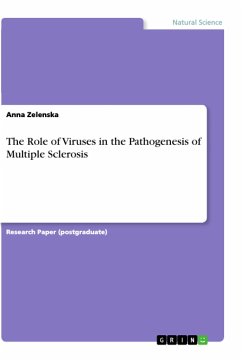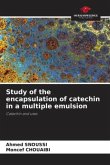Research Paper (postgraduate) from the year 2019 in the subject Biology - Diseases, Health, Nutrition, , language: English, abstract: Current data suggest that multiple sclerosis (MS) may be considered as a result of a local inflammatory response in the central nervous system (CNS) initiated by environmental factors in individuals with genetic background predisposing to MS. Data obtained to date by massive genome-wide association studies allow to explain only approximately 30% percent of heritability predisposing to MS, which together with other phenomena speak in favour of the contribution of environmental factors to MS development. Among the most discussed ones potentially trigerring MS are persistent infections which may lead to the activation of autoimmune processes in the CNS. Despite active studies of viral factors in MS etiology, many questions remain, including the contribution of various viral infections or their combinations to the complex pathology of MS, immunologicaland genetic settings predisposing to the development of MS, etc. This review aims to consider the recent evidence for the involvement of different viruses in the pathogenesis of MS, potential virus-associated mechanisms triggering the disease, and perspectives for MS treatment arising from these findings. In recent years, data obtained by a significant number of independent studies indicate the pathogenetic role of the Epstein-Barr virus (EBV) and human endogenous retroviruses (HERV) in multiple sclerosis, which gives a ground for new therapeutic strategies for this disease.








